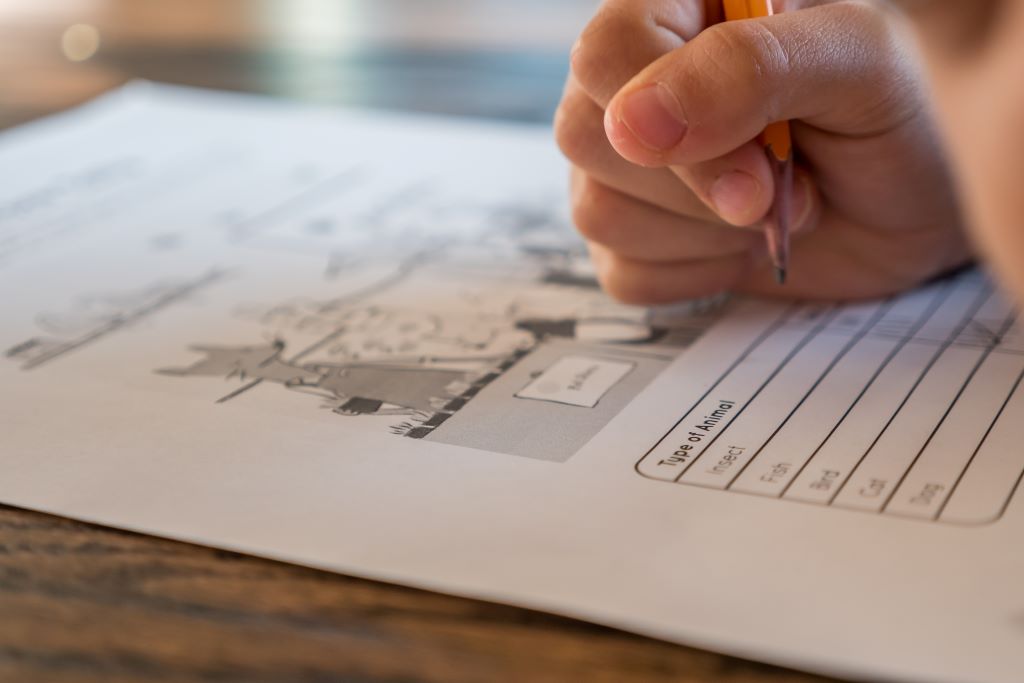
As a 2nd year University student following a degree to become an early years educator, I have learned a lot about the importance of acknowledgment. Acknowledging children and their efforts is both the educator’s and the parents’ or guardians’ responsibility, and it has numerous effects on the children’s development.
We need to view the children’s efforts as valid and truthful, as well as honour and respect them. In this article we will be looking at how we can recognise opportunities in which we can acknowledge children, as well as the ‘acknowledgement language’, advantages, and what happens when the children’s efforts go unnoticed.
Recognising opportunities to acknowledge the children might be hard for educators, parents and guardians, especially if there is a large number of children, or if the child/children have behavioural problems. For this reason, I have compiled a list of 8 opportunities that one can take notice of and act upon:
- Acknowledgement: By acknowledging children ‘s success after doing certain things, like self-help tasks and writing letters or numbers correctly, you will be fostering independence while also helping them understand that their intelligence and learning can be developed and improved. This is known as the growth mindset. Additionally, by observing, honouring and respecting the slightest growth, we will not only show children that hard work pays off, but also that their effort to do better is being noticed and appreciated.
- Recognition: When a child shows perseverance when facing a difficult task, adults should recognise and encourage them as it helps the child foster resilience. This trait will obviously come in handy in their life, thus it is ideal to start implanting this trait in children from such a young age.
- Praise: It is important that we acknowledge a child when s/he does a good deed, like comforting his or her friend after getting hurt, or when helping around the house. This helps them learn that showing empathy and compassion for those around them is an important factor in developing positive relationships with their peers.
- Positive feedback: Acknowledging children by telling them what worked well and what did not while completing a task or project will help them work more efficiently next time when faced with a similar task. This can also teach them new problem-solving strategies which they would be able to use later on in life, such as group work in the classroom, and tasks given at home.
- Encouragement: When one encourages creativity at a young age, she or he would be encouraging the child to stay creative even when solving problems and completing tasks throughout their lifetimes. Additionally, it is important to encourage creativity at that age because it is rarely emphasised or stimulated later on in life.
- Dedication: When an adult takes the time to acknowledge and encourage exploration every time the child is trying innovative things and following through with ideas, she or he will be embedding inquisitive learning in the children.
- Fostering independence: Adults should be acknowledging children ’s decisions and actions, as by doing so, they would be fostering independence while helping them in their overall development.
- Promote individuality: Acknowledging children who portray leadership skills like when they lead by example, as they will be better equipped to overcome challenges in their lifetime.
Each and every child is different and so these opportunities might not present in the above mentioned ways. So, you should always be on the lookout for opportunities that you can encourage. When recognising children’s efforts, it is also ideal to look closely at the details and the actions, so you would get a clearer image on what they are doing. In addition to this, observe the time dedicated for the action; the skills, resources, and steps that they might have used or taken; the areas of development explored and how they were examined; and finally, what they know or want to know. By observing and considering these, you would be able to understand why the specific opportunities mentioned above are important for the children.
Recognise, honour and respect any opportunities and be interested in what the child might be doing. To make your interest clear with the child, you can consider the following:
- Body language – Be near and face the child.
- Eye contact – Make and maintain eye contact with the child as it shows that you are paying attention and that you are interested in what is being said or done.
- Listen – Listening to what is being said and reflecting upon it leads to meaningful responses.
- Open-ended questions – Do not ask questions which require yes or no answers. Instead, ask open-ended questions as you would be prompting thoughts inside the child’s head which would eventually help you gather information as well as share the conversation with others.
- Reflect the effort and actions – Ideally try to provide a playback for the child, like “I see you organised the blocks according to the sizes. What are you thinking of doing next?”
- Documentation of effort – Documentation can take various forms, like notes, photographs, videos, artefacts etc. By documenting the child’s work, you would be providing them with an opportunity to look back at their learning process and to self-reflect. It also makes them feel important, enhancing their self-esteem and confidence, and providing relatable examples which you can look at.
- Time – It is extremely important to be flexible and provide ample time, experiences, and materials to support the children’s efforts.
Through personal experience, I have learned that when one acknowledges children, they start to be more confident and proud of their work, which leads them to work harder. They also start to show others, including their educators and parents, their work with more enthusiasm. The children would also find it easier to open up to their parents and educators, hence there would be an improvement in their relationship. This helps their learning and development. Additionally, the children will be encouraged to become inquisitive learners while working on developing a growth mindset. They will also evolve into independent, resilient, compassionate as well as empathic beings. They also learn that hard work pays off.
Unfortunately, if one ignores a child’s effort, she or he would not be able to develop 3 things: positive behaviour, social-emotional skills and certain traits. Positive behaviours are actions which benefit not only the child per se, but also those around him/her, including using nice words when speaking, staying calm and under pressure, as well as following the rules. Social-emotional skills are the children’s abilities to interact with other individuals, understand and be able to control their emotions, expressing themselves, reacting to situations and building new friendships. The ability to connect with the surrounding environment and the people who inhibit it is also considered as a social-emotional skill. And finally, they would not be able to develop traits that will help them be successful in their education journey and life in general such as resilience, independence, self-esteem, respect, compassion, etc.
To conclude, giving the child a sticker, a praise, compliment, a high five or even a smile will only do good. Acknowledging children and providing positive feedback and encouragement is very important to create a safe environment, a strong bond, while also helping them in their overall development and success.

Christianne Marie Galea is currently reading for a B.A (Hons) in Early Childhood Education and Care at the Faculty of Education, University of Malta, which will lead her to become an early childhood educator. Her wish is to create an environment in which her class children will feel comfortable sharing their thoughts and emotions while expressing themselves freely.
In her free time Christianne loves creating art through mixed mediums such as water colours, acrylic, pencil colours and aquarelles. She also loves listening to music, acting and spending time with her sisters.
Click here to check out Christianne’s full bio as well as a list of all her Wham published articles





